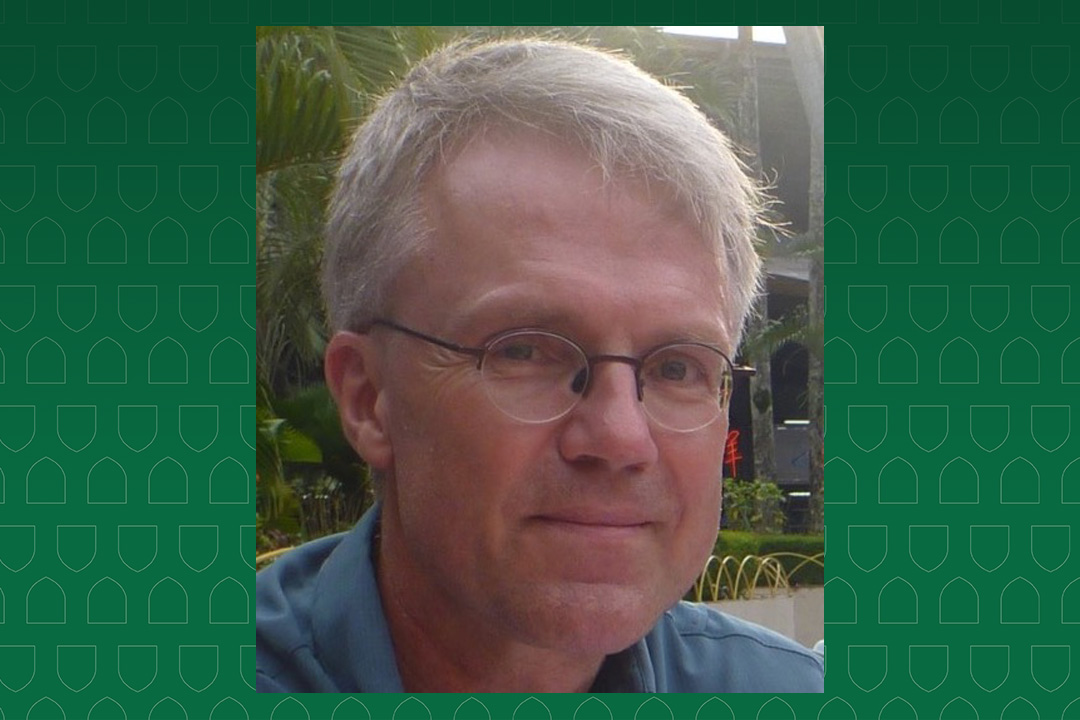
Everyone has a role in our planet's health, says USask sustainability faculty fellow
For the past two years, University of Saskatchewan (USask) Professor Ulrich Teucher has been encouraging students to think about their role in sustainability.
By Darla ReadAppointed as one of the six sustainability faculty fellows in the spring 2022, Dr. Ulrich Teucher (PhD) has been interested in sustainable living since his youth.
“I feel that everything that lives on earth received its life as an advance, as a present, and that I want to give back to existence in whatever ways I can.”
USask’s sustainability faculty fellowship was the perfect fit for Teucher.
He had already begun teaching his courses under the theme of sustainability, as well as devising innovative assignments for students, such as expression sessions (facial/bodily expressions in which students embody thoughts about climate change issues) and artistic impressions (through which students give voice and form to thoughts about issues of climate change).
“Since the health of ourselves and the health of the planet is not only a cognitive effort but an interdisciplinary one, I wanted the assignments to reflect that,” explained Teucher, who also introduced personalized action plans that would channel students’ research papers into concrete applications.
Student Ramneet Jassal created one such action plan that brought about real change at the gurudwara – or Sikh temple – in her community. Jassal identified improvements that could be made, such as opening curtains to let in natural light to save on electricity bills, thereby having money for recycling and compost bins.
“Ramneet’s actions provide a neat example how university and communities can work together and mutually inspire and affect action in each other,” noted Teucher.
The link between the fellowship and USask’s Critical Path to Sustainability is clear, said Dr. Airini, provost and vice-president academic.
“The plan calls for USask to support a generation of learners to shift mindset, expand skillset, and accelerate action to achieve the United Nations SDGs (Sustainable Development Goals),” said Airini. “The work of fellows like Teucher and students like Jassal exemplify putting ideas into action and ensure USask will indeed be what the world needs in order to build a more sustainable future.”
Highlights for Teucher from the sustainability faculty fellowship include connections made and knowledge gained while attending an Open Education conference in Edmonton last year, as well as contributing a book chapter on strategies and best practices on how to teach matters of sustainability in sustainable ways.
The book, Cultivating Change: A Prairie Guide to Sustainability Teaching and Learning Practices, was published by the Gwenna Moss Centre for Teaching and Learning and features chapters from each of the six sustainability faculty fellows.
Teucher encourages other USask instructors to apply in the upcoming intake for the sustainability faculty fellowship.
“University education must provide the basis for educating young people about the necessity of sustainability efforts, in whatever courses, programs, and departments we teach,” he said. “The sustainability faculty fellowship provides its fellows with encouraging opportunities and supports to learn from each other how to teach and learn with our students about ways to become more sustainable and do so in sustainable ways.”
For those interested in applying for the Sustainability Faculty Fellowship, the deadline is April 15, 2024.
Together, we will undertake the research the world needs. We invite you to join by supporting critical research at USask.

